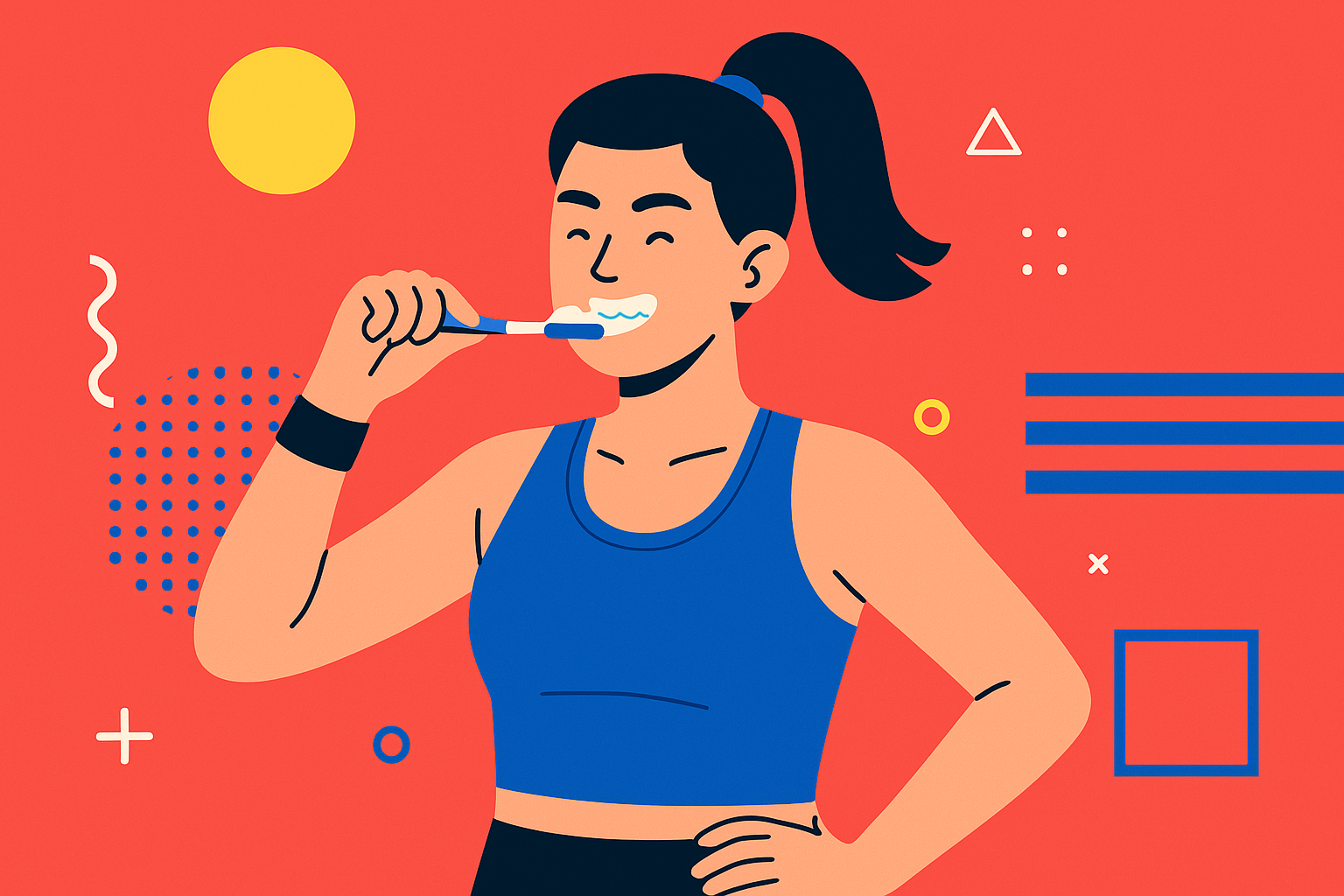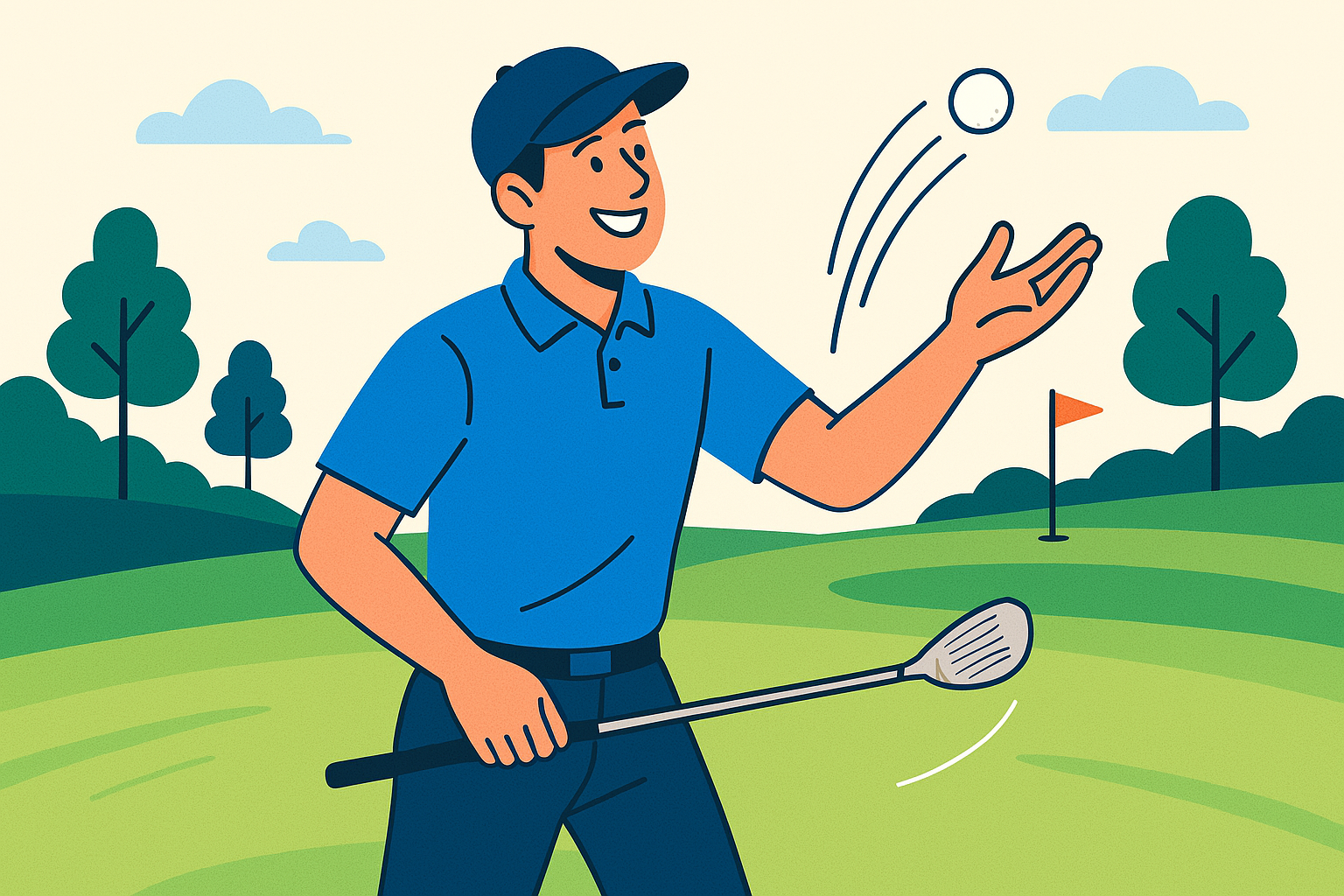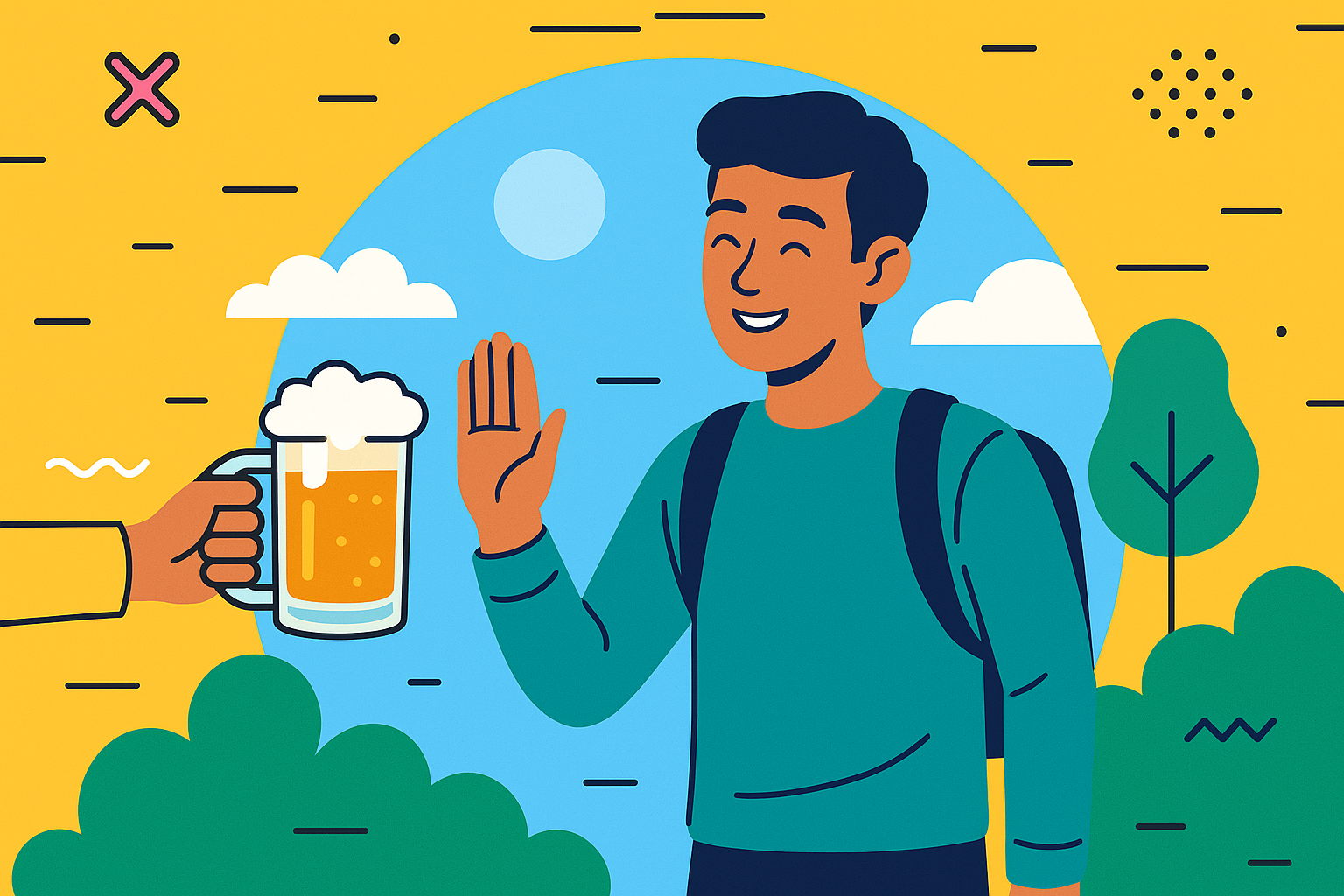We all know we should brush our teeth morning and night. But according to the American Dental Association (ADA), up to 30% of adults admit they don’t brush twice daily¹. For those of us who live by calendars, spreadsheets, and behavioral data, that stat isn’t just gross — it’s fascinating. Why is such a simple, well-understood habit so hard to maintain? And how can we finally crack the code using the same mindset we apply to optimizing everything else in life?
If you’re a data-driven person who loves habits, you’re in the right place. In this post, we’re going to dissect the humble act of brushing your teeth through the lens of habit psychology, behavioral economics, and smart automation. Because oral hygiene isn’t just about fresh breath — it’s a micro-habit with macro impact.
The Psychology Behind Brushing Habits
Brushing your teeth is what behavior scientists would call a “cue-based habit,” usually triggered by time of day (morning/night), location (bathroom), or sequence (after waking up, before bed). According to James Clear, author of Atomic Habits², cue-based habits rely on context and predictability for reinforcement.
What makes it deceptively difficult is that the stakes feel low. If you skip once, you don’t instantly get a cavity or lose your front teeth. This lack of immediate consequence lowers urgency. As supported by the “Present Bias” in behavioral economics, humans naturally undervalue long-term benefits in favor of short-term comfort⁶.
But over time, consistent twice-a-day brushing prevents plaque buildup, reduces the chance of gum disease, and helps avoid costly dental interventions. In short, it’s the perfect example of a high ROI micro-habit — low effort, compounding returns.
Yet, motivation isn’t the issue for most people. Consistency is. Especially when our routines get disrupted by travel, fatigue, or Netflix binges.
Common Reasons People Miss Brushing Sessions
| Reason for Skipping | Frequency (Reported by Habit Trackers) |
|---|---|
| Too tired at night | 44% |
| Rushed in the morning | 27% |
| Forgot | 18% |
| Not at home | 11% |
(Data compiled from HabitShare and Way of Life user surveys, 2021–2023)
If this sounds familiar, you’re not alone. But you’re also not powerless.
Turning Tooth Brushing Into a Keystone Habit
Brushing your teeth has the potential to become what Charles Duhigg calls a “keystone habit”—a behavior that triggers other positive behaviors³. Many people report that once they consistently brush at night, they also stop late-night snacking or start flossing more often. Morning brushing often leads to feeling more alert and ready to face the day.
The key to transformation is making the habit as obvious, easy, and satisfying as possible.
Here’s how a sample plan unfolds for someone trying to lock in this habit:
Week 1: Anchor morning brushing to coffee or skincare, and night brushing to your last phone check. Don’t aim for perfection yet—just aim to notice the cue.
Week 2: Add a 2-minute timer and log each brush in a habit tracker. You’ll start noticing trends (like skipping after late dinners). Use that data to pre-commit: brush before you hit the couch.
Week 3: Layer in a reward. A minty mouthwash or checking off your streak in a dashboard might be enough. If you miss a session, don’t break the chain—double down on the next one.
Week 4: Add friction to skipping. Leave your toothbrush in plain sight. Keep floss and toothpaste in multiple places (travel bag, work bag, partner’s house).
By the end of 30 days, most people report brushing becomes automatic. But the key was never motivation. It was design.
Quantifying Success: What the Data Shows
Once you start treating your brushing habit like a dataset, things get interesting. A meta-analysis on habit formation by Lally et al. (2010) found that simple health habits take a median of 66 days to become automatic⁴, but significant gains occur by day 30 with consistent cue-response behavior.
Here’s what happens when people track their brushing with consistency over 30 days:
| Metric | Average Improvement |
| Brushing Compliance | +67% after 3 weeks |
| Nighttime Misses | Reduced by 82% |
| Average Brush Time | Increased from 42s to 1m 51s |
| Habit Retention at 60 Days | 73% still brushing twice daily |
What these numbers tell us is that feedback loops matter. Just like in finance or fitness, what gets measured gets managed.
Quick Wins to Enhance the Brushing Habit
If you’re the type of person who wants more than just a reminder, try these:
- Pair brushing with a podcast episode to make it more enjoyable
- Use a toothbrush that gives real-time feedback or vibrations (Philips Sonicare, Oral-B iO series)
- Add a visual tracker to your mirror or phone lock screen
- Store a backup toothbrush in your car or gym bag for emergencies
- Name your toothbrush (trust us, it weirdly increases attachment)
These hacks work not because they’re magic, but because they increase salience and decrease friction. In other words: data-backed dopamine.
How the 30 Day Habits AI Coach Makes Brushing (Almost) Foolproof
This is where things get supercharged. The 30 Day Habits AI Coach isn’t just another reminder app. It adapts to you. Based on your engagement and progress, it adjusts advice dynamically. If it notices you tend to miss night brushing on weekends, it’ll preemptively suggest brushing earlier in the evening. If your streak breaks, it recalibrates the plan to ease you back in without guilt or judgment.
Its most powerful feature is predictive success modeling. The AI calculates your likelihood of completing the habit based on your patterns, compares it to anonymized data from others with similar profiles, and tailors nudges that have been shown to work best for your personality type. This draws from research in adaptive behavioral interventions and just-in-time adaptive interventions (JITAI)⁵.
You’ll also get personalized emails and SMS reminders at the exact moments they make a difference. Not when you’re driving or sleeping, but precisely when habit reinforcement is most effective. That’s behavior design at its finest.
And when the 30 days are done? You don’t just get cleaner teeth. You get a certificate, a success score, and the satisfaction of turning a “meh” habit into a micro-mastery.
If you’re serious about leveling up your brushing habit and treating your mouth like the high-performing machine it is, it’s time to log in, sign up, and let the 30 Day Habits AI Coach guide you. Because even your dentist will agree: data beats dental drills every time.
References
- American Dental Association (ADA). (2022). Oral Health and Well-Being in the United States. https://www.ada.org
- Clear, J. (2018). Atomic Habits. Avery.
- Duhigg, C. (2012). The Power of Habit: Why We Do What We Do in Life and Business. Random House.
- Lally, P., van Jaarsveld, C. H. M., Potts, H. W. W., & Wardle, J. (2010). How are habits formed: Modelling habit formation in the real world. European Journal of Social Psychology, 40(6), 998–1009.
- Nahum-Shani, I., Smith, S. N., Spring, B. J., Collins, L. M., Witkiewitz, K., Tewari, A., & Murphy, S. A. (2018). Just-in-Time Adaptive Interventions (JITAIs) in Mobile Health: Key Components and Design Principles for Ongoing Health Behavior Support. Health Psychology, 37(6), 510–523.
- O’Donoghue, T., & Rabin, M. (1999). Doing It Now or Later. The Quarterly Journal of Economics, 114(1), 121–160.





